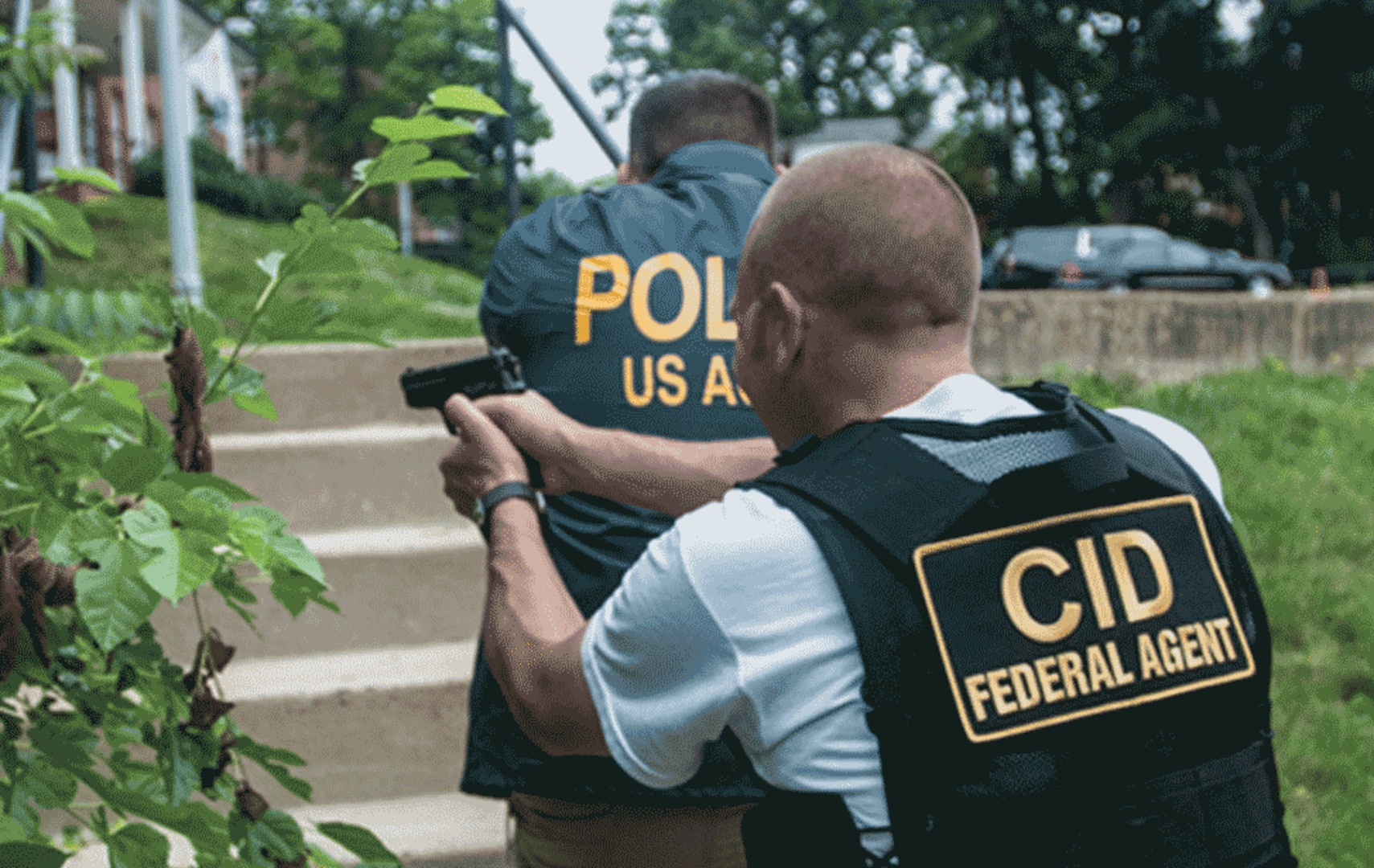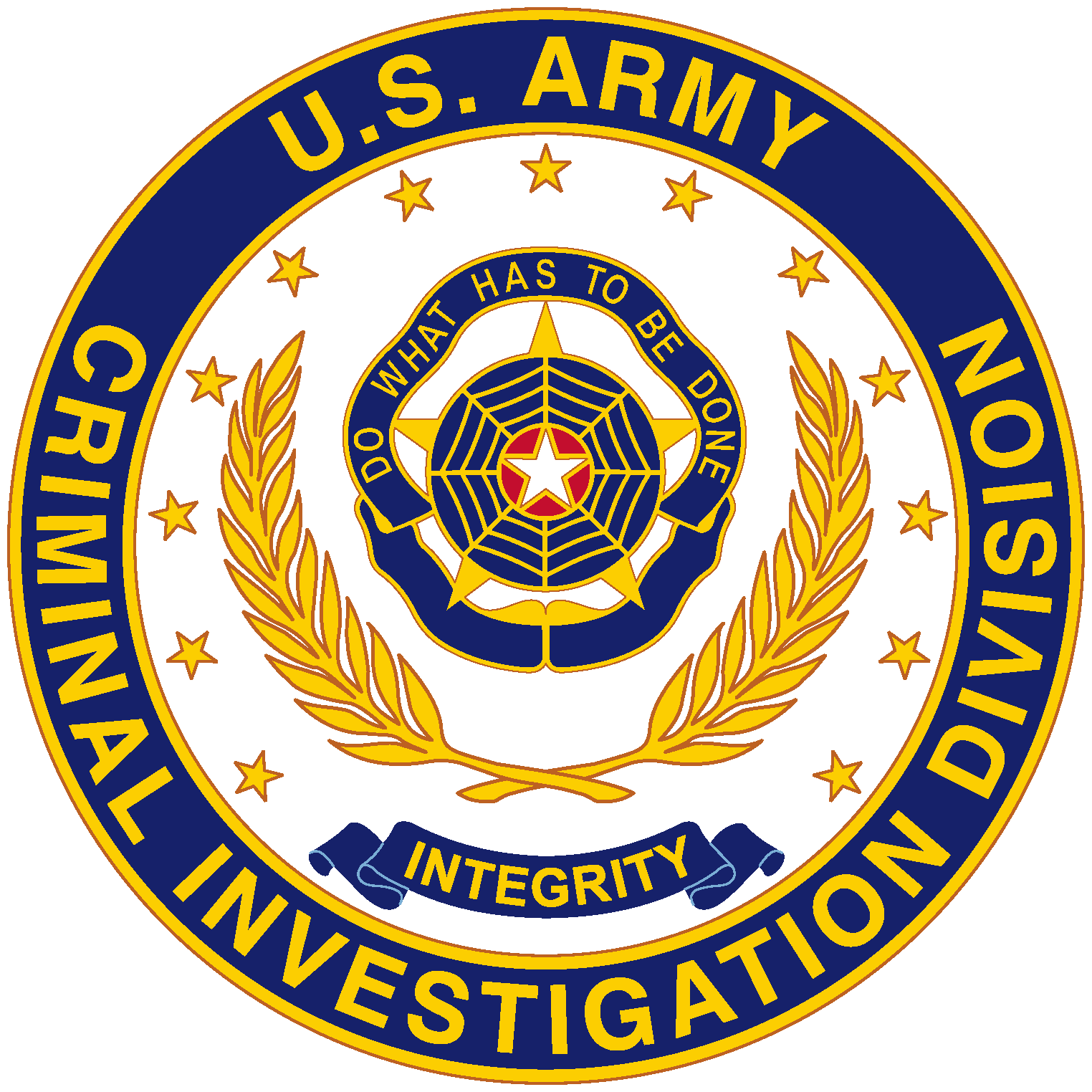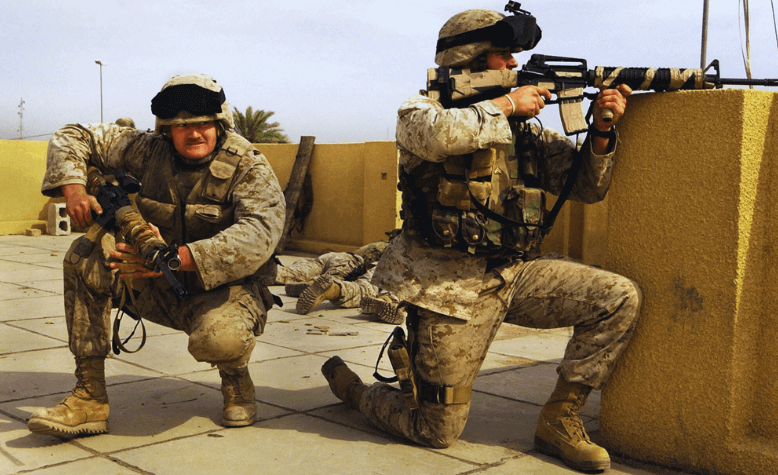Criminal Investigator Army: Unveiling Justice’s Heroes

Embarking on a career as a Criminal Investigator within the Army, often referred to as CID (Criminal Investigation Command) Agents, involves a specialized path in military law enforcement. These professionals play a critical role in ensuring the integrity and legal compliance of Army personnel and operations.
Their expertise in crime scene processing, interrogation, and evidence collection are pivotal in solving crimes ranging from fraud to homicide. Prospective agents undergo rigorous training to develop the acumen necessary for this demanding role.
Army CID Agents must possess strong analytical skills, attention to detail, and a commitment to justice. They work closely with other law enforcement agencies to maintain order and discipline within the Army ranks. Their dedication helps to uphold the Army’s values and supports the overall mission of national security.
The Role Of A Criminal Investigator In The Army
The United States Army Criminal Investigation Command, commonly known as CID, employs agents to conduct felony-level investigations within the Army. These special agents play a critical role in ensuring the safety and security of all personnel. Each investigation they lead helps maintain the integrity of the Army and supports the rule of law.
Duties And Responsibilities
- Conduct criminal investigations involving Army personnel.
- Gather evidence and build strong cases.
- Interview witnesses and suspects with care.
- Write detailed reports for legal proceedings.
- Cooperate with other law enforcement agencies.
- Prevent crime by teaching the Army community.
Agents must be ready at all times to travel to various locations and work alongside different units. Each case they solve helps keep the Army trusted and secure.
Skills And Qualifications
| Qualification | Detail |
|---|---|
| Education | Bachelor’s degree in Criminal Justice or related field. |
| Experience | Prior investigative work, military or civilian. |
| Skills | Critical thinking, attention to detail, and excellent communication. |
| Physical Fitness | Must meet Army physical fitness standards. |
| Clearance | Eligible for security clearance. |
These are just a few of the requirements for a career as a criminal investigator in the Army. Rigorous training and continuous education ensure their skills remain sharp.

Credit: www.army.mil
Training To Become An Army Detective
Embarking on a career as an Army detective requires rigorous training and a solid educational foundation. This dedicated path combines academic knowledge with specialized military training programs. Together, these elements forge professionals skilled in criminal investigation within the Army’s unique legal framework.
Educational Background
Prospective Army detectives must have a strong educational base. Typically, this includes:
- High school diploma or equivalent
- College courses in criminal justice or a related field
- At least 60 semester hours at an accredited college
These educational requirements ensure candidates possess critical thinking skills. They also prepare them for the challenges of investigative work.
Specialized Training Programs
The Army provides detectives with advanced training which includes:
| Program | Focus |
|---|---|
| Basic Leader Course | Leadership skills in a military context |
| Criminal Investigation Command (CID) Agent Course | Law enforcement techniques and criminology |
| Advanced Individual Training | Specialized investigative skills |
This combination of programs equips Army detectives with the expertise required to excel. For those with a passion for justice and a commitment to service, a career in Army criminal investigation can be both rewarding and impactful.
High-profile Cases And Their Impact
When a high-profile case hits the headlines, the whole world watches. The role of the Criminal Investigator in the Army becomes crucial. These cases test their skills to the limit and have lasting impacts on society, the law, and future investigations. Not only do they solve complex puzzles, but they also shape how we view justice and order in our communities.
Notable Investigations
Army Criminal Investigators tackle some of the most challenging cases. Their investigations often lead to significant breakthroughs. Here are a few examples:
- Insider Threat Incidents: Cases where military personnel turn against their own.
- Terrorism Plot Disruptions: Uncovering and stopping plans that could harm many lives.
- International Espionage: Catching spies who steal national secrets.
Each case is like a complex puzzle with pieces spread across various corners of the world.
Media And Public Perception
The media plays a big role in shaping the public’s view of these cases. When investigators successfully solve a case, it can lead to a sense of pride and trust in the military’s justice system. Headlines may feature the dedication and technical skill of these investigators. But, the media can also be critical, especially in cases of perceived injustice or failure. This, in turn, influences public opinion.
High-profile investigations are a tightrope walk of skill, with the eyes of the world watching every step.
Tools Of The Trade
The ‘Tools of the Trade’ for a Criminal Investigator Army are critical components for solving the mysteries behind crimes. These tools not only help in collecting evidence but also play a significant role in analyzing every small piece of the puzzle.
From cutting-edge technologies to tried-and-tested investigative methods, the arsenal at a criminal investigator’s disposal is both vast and essential. Let’s delve into the key instruments that help these experts bring justice to light.
Forensic Technologies
Forensic Technologies are the backbone of modern criminal investigations. They include a range of devices and software that analyze evidence like fingerprints, DNA, and ballistic patterns. Here are some of the high-tech aids utilized:
- Biometric Analysis Equipment: Scans fingerprints, iris patterns, and other unique identifiers.
- DNA Sequencing Tools: Extracts and compares genetic profiles.
- Ballistics Analysis Systems: Helps in examining gun-related evidence.
- Digital Forensics Software: Recovers and investigates digital data from computers and mobile devices.
Investigative Techniques
In tandem with technological advancements, Investigative Techniques form the practical approach to crime solving. These include strategies and methods that investigators use to track down suspects and understand crimes:
- Surveillance: Includes both physical observation and electronic monitoring.
- Interviews and Interrogation: Integral for gathering information from witnesses and suspects.
- Criminal Profiling: Helps in identifying potential suspects based on behavior patterns.
- Crime Scene Reconstruction: Re-enacts incidents to understand what occurred.
Collaboration With Other Law Enforcement
The role of a Criminal Investigator in the Army is critical for maintaining law and order. Collaboration with other law enforcement agencies is essential. Their combined efforts are key to solving complex cases.
Interagency Operations
Interagency operations boost investigative power. Criminal Investigators in the Army often join forces with other agencies. Together, they tackle national security threats and other serious crimes.
- FBI: They partner to pursue federal cases.
- DEA: Joint operations target drug trafficking.
- Local Police: Coordination helps solve local concerns.
Working side by side, they ensure a united front against crime, leading to efficient law enforcement.
Sharing Intelligence And Resources
Sharing information is vital for success. Army Criminal Investigators exchange data with other agencies. This promotes a clearer understanding of criminal patterns.
| Agency | Type of Shared Information |
|---|---|
| Homeland Security | Terrorism threats and data analysis |
| ATF | Gun trafficking insights |
| State Police | Regional crime statistics |
Resources such as forensic labs and technology tools are often shared as well. This creates a more robust investigative environment.
Challenges In Military Justice Pursuits
Working in the shadows to ensure justice within the ranks, criminal investigators in the Army face unique hurdles. These individuals navigate a maze of protocol and emotion. They seek the truth while respecting the code that binds their community.
Dealing With Secrecy And Bureaucracy
Secrecy is a wall in military investigations. Investigators must pierce this veil. They require clearance to access classified information. This process often gets tangled in red tape. Bureaucracy slows the progress of justice.
- Obtaining clearance can be a prolonged affair.
- Privacy laws protect service member rights but complicate investigations.
- The need-to-know basis restricts information flow.
To work effectively, investigators must navigate these obstacles adeptly. They rely on persistence and expertise to break through barriers.
The Emotional Toll
The emotional weight of military justice work is heavy. Crime within a tight-knit community can shatter trust. Investigators face this head-on. They balance duty with compassion, often bearing witness to colleagues’ pain.
| Aspect | Impact |
|---|---|
| Morale | Investigations may affect team spirit. |
| Stress | The high-stakes environment intensifies pressure. |
| Isolation | Investigators can feel removed from peers. |
Despite these challenges, criminal investigators maintain unwavering professionalism. They ensure the military justice system operates with integrity and fairness.
Maintaining Ethical Standards
In the rigorous world of law enforcement within the military, criminal investigators perform duties that require not just skill and diligence, but also a strong moral compass. These professionals navigate complex cases while adhering to a stringent set of ethical standards.
These standards ensure justice is served while respecting the rights and dignity of all individuals involved. With ethics at the core of every decision, Army criminal investigators embody integrity on and off the battlefield.
Upholding The Uniform Code Of Military Justice
The Uniform Code of Military Justice (UCMJ) is the bedrock of legal discipline within the military. Criminal investigators uphold these laws to maintain order and promote justice. They investigate crimes with precision, ensuring that:
- Every action is legal under the UCMJ.
- Independence of the investigation is maintained.
- Accused personnel receive a fair trial.
Balancing Morals And Orders
Sometimes, orders may challenge an investigator’s personal morals. A delicate balance is paramount. Army criminal investigators are trained to:
- Interpret orders with an ethical lens.
- Prioritize moral values alongside military duties.
- Speak up if orders conflict with ethical standards.
Rigorous training and a strong ethical foundation empower these investigators to serve with honor, making careful decisions that uphold both the letter and the spirit of military law.

Credit: www.jbsa.mil
Real-life Heroes Without Capes
In the shadows of our everyday lives, real heroes operate with unmatched dedication and bravery. Criminal Investigators in the Army are among these unsung champions. These men and women take on a task that is fraught with danger, yet crucial for our society’s safety and justice. They blend into the background, but their impact is profound, as they tirelessly work to unravel, investigate, and solve crimes to protect citizens and the nation.
Profiles Of Courageous Investigators
- Major Susan Kellers: Led a team to crack a high-profile espionage case.
- Captain Ryan Banks: Expert in cybercrime, prevented data breaches affecting national security.
- Sergeant John Carter: Known for his undercover work, exposing a notorious smuggling ring.
Each of these investigators has shown indomitable courage and exceptional skill in their fields. Their stories, often untold, reflect a commitment to the pursuit of truth and the enforcement of law and order.
The Personal Cost Of Justice
Behind every case file and investigation, there lies a human story. The path to justice is never easy. These pursuit guardians often face long hours, danger, and emotional tolls. Yet, they press forward, driven by a deep sense of duty.
| Aspect | Effect |
|---|---|
| Physical Risk | High-stakes situations, often in harm’s way. |
| Mental Stress | Intense case pressures can lead to burnout. |
| Personal Sacrifice | Missed family moments, always on call. |
Recognition may not always come their way, but the rippling effects of their sacrifice ensure a safer world for all of us. These Criminal Investigators truly are heroes without capes, standing vigilantly between chaos and order.

Credit: en.wikipedia.org
Conclusion
Embarking on a career as a criminal investigator in the army is a commendable commitment. It merges patriotism with the pursuit of justice, offering a unique blend of challenges and fulfillment. For those intrigued by complex investigations and national service, this path promises a rewarding journey.
Armed with dedication and rigorous training, army criminal investigators stand as unsung heroes, safeguarding our armed forces and upholding the law.







